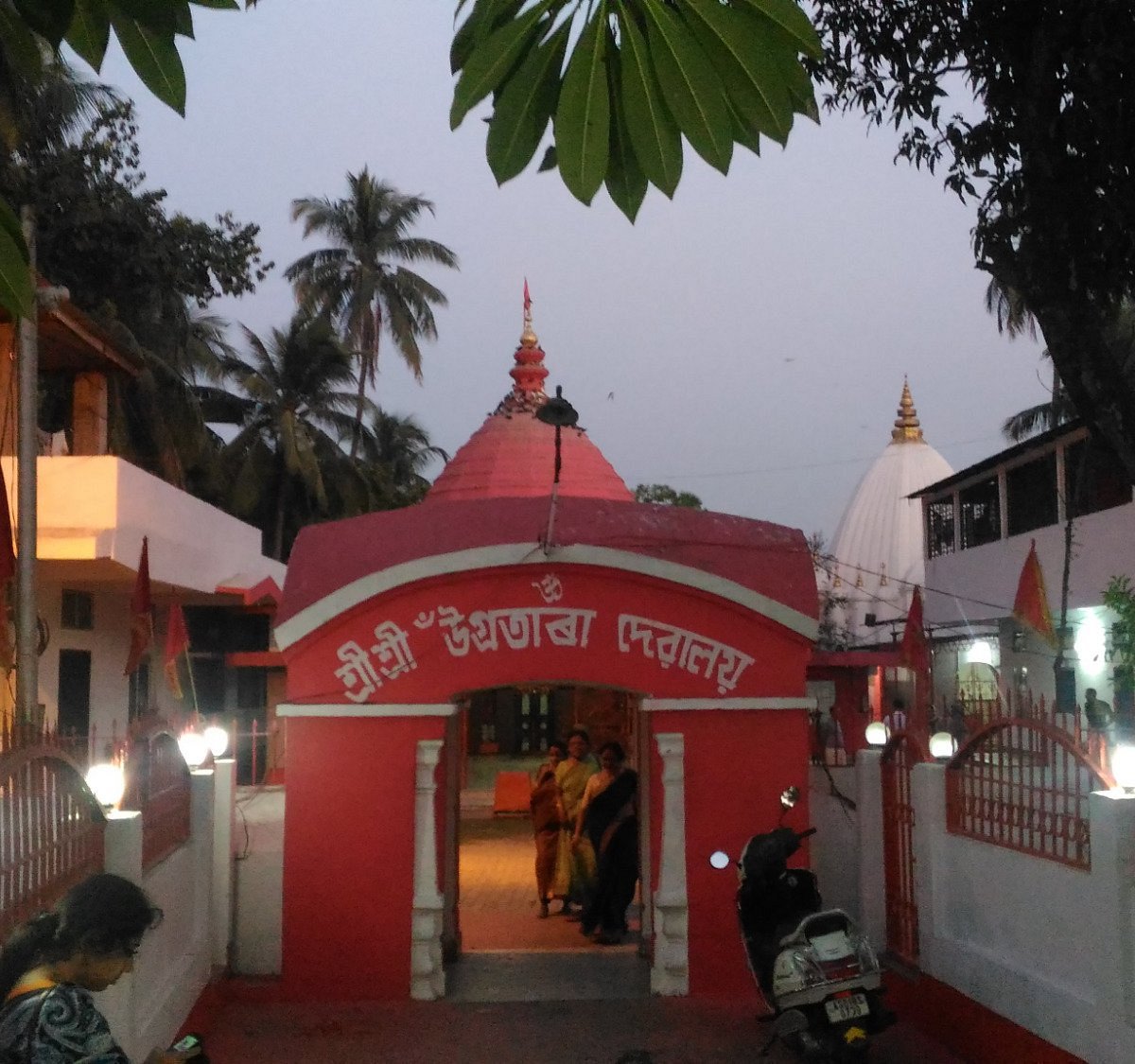Ugratara Temple stands as a significant religious site, attracting devotees and tourists alike. Revered as a powerful Shakti Peetha, the temple is dedicated to the goddess Ugratara, a fierce manifestation of Goddess Durga. With its rich history, stunning architecture, and profound spiritual significance, Ugratara Temple offers a unique glimpse into the cultural fabric of Assam.
Historical Context
The history of Ugratara Temple dates back to the 17th century during the reign of the Ahom dynasty. It is believed that the temple was established by King Swargadeo Rudra Singha, who sought the blessings of the goddess to ensure peace and prosperity in his kingdom. According to local legends, the temple is constructed on the site where the goddess is said to have manifested herself. Over the years, the temple has evolved into a significant pilgrimage destination, embodying the spiritual heritage of the region.
Architectural Beauty
The architecture of Ugratara Temple reflects traditional Assamese styles, featuring intricate carvings and vibrant murals. The temple is primarily built of stone and brick, showcasing the craftsmanship of the artisans of that era. The main shrine, or garbhagriha, houses the idol of Ugratara, depicted in a fierce form, adorned with jewelry and traditional attire.
The temple’s multi-tiered shikhara (tower) rises majestically, drawing the eye of every visitor. Surrounding the temple, lush gardens and well-maintained pathways create a serene atmosphere, inviting contemplation and devotion. The artistry displayed in the temple’s carvings, depicting various deities and motifs, adds to its architectural grandeur, making it a feast for the eyes.
Spiritual Significance
Ugratara is venerated as a protective goddess, believed to bestow blessings upon her devotees and grant their wishes. Many visit the temple to seek relief from difficulties, whether related to health, relationships, or personal challenges. The temple is especially popular among those facing obstacles in their lives, as devotees believe that the goddess’s grace can help them overcome adversities.
One of the unique aspects of worship at Ugratara Temple is the tradition of animal sacrifice, particularly goats. While this practice has stirred controversy, many devotees see it as a form of offering that pleases the goddess, symbolizing devotion and gratitude. Rituals performed here are often accompanied by chanting and hymns, creating an atmosphere charged with spiritual energy.
Festivals and Celebrations
Ugratara Temple comes alive during various festivals, with the most notable being the Navaratri festival. Celebrated with great fervor, Navaratri lasts for nine nights and is dedicated to the worship of Goddess Durga. During this period, the temple attracts a large number of devotees who engage in special prayers, processions, and cultural performances. The atmosphere is vibrant, filled with the sounds of devotional music and the energy of collective worship.
Another significant occasion is the Bihu festival, which marks the Assamese New Year and celebrates the harvest season. Although Bihu is primarily a secular festival, many devotees visit Ugratara Temple during this time to seek blessings for a prosperous year ahead. The temple’s proximity to the river adds to the festive spirit, with locals participating in boat races and traditional dances along the banks.
Visiting Ugratara Temple
For those planning a visit, Ugratara Temple is conveniently located in Guwahati and is accessible from various parts of the city. The temple welcomes visitors throughout the week, with specific timings for rituals and prayers. It is advisable for visitors to dress modestly and respectfully, keeping in mind the sacredness of the site.
Upon entering the temple premises, one is immediately enveloped in a serene atmosphere, perfect for reflection and meditation. Visitors can participate in the daily rituals, light candles, and offer flowers or fruits to the goddess. Many devotees also engage with temple priests, who provide insights into the rituals and the significance of the goddess.
Cultural Importance
Beyond its religious significance, Ugratara Temple serves as a cultural hub for the local community. The temple frequently hosts events that celebrate Assamese traditions, including dance performances, art exhibitions, and discussions on folklore. Such activities foster a sense of belonging among the community and help preserve the region's rich heritage.
Moreover, the temple acts as a platform for educational initiatives, where devotees and visitors can learn about the history of Assamese culture, rituals, and the various festivals celebrated throughout the year. This blend of spirituality and education enhances the experience for those visiting the temple, connecting them to the broader narrative of Assamese identity.
Nearby Attractions
Visitors to Ugratara Temple can explore several nearby attractions that complement their spiritual journey. A short distance away lies the iconic Kamakhya Temple, another prominent Shakti Peetha dedicated to Goddess Kamakhya. Known for its unique rituals and historical significance, the Kamakhya Temple attracts a large number of pilgrims and is often included in the itineraries of those visiting Ugratara.
The Brahmaputra River, with its picturesque views, offers opportunities for boat rides and scenic picnics. The riverfront is a popular spot for both locals and tourists, especially during sunset when the sky is painted in hues of orange and pink. Additionally, the Assam State Museum, located nearby, provides insights into the history, art, and culture of Assam, making it a worthwhile stop for history enthusiasts.
Conclusion
Ugratara Temple is not just a place of worship; it is a spiritual and cultural landmark that embodies the essence of Assamese traditions. Its historical roots, architectural splendor, and profound significance make it a must-visit destination for anyone exploring Guwahati. Whether seeking spiritual solace, cultural enrichment, or simply a moment of reflection, Ugratara Temple offers an unforgettable experience.
As you plan your visit, take the time to immerse yourself in the temple's tranquil ambiance, participate in its rituals, and engage with the local community. Ugratara Temple stands as a beacon of faith and resilience, inviting all to experience its blessings and connect with the rich tapestry of Assamese culture.





Comments